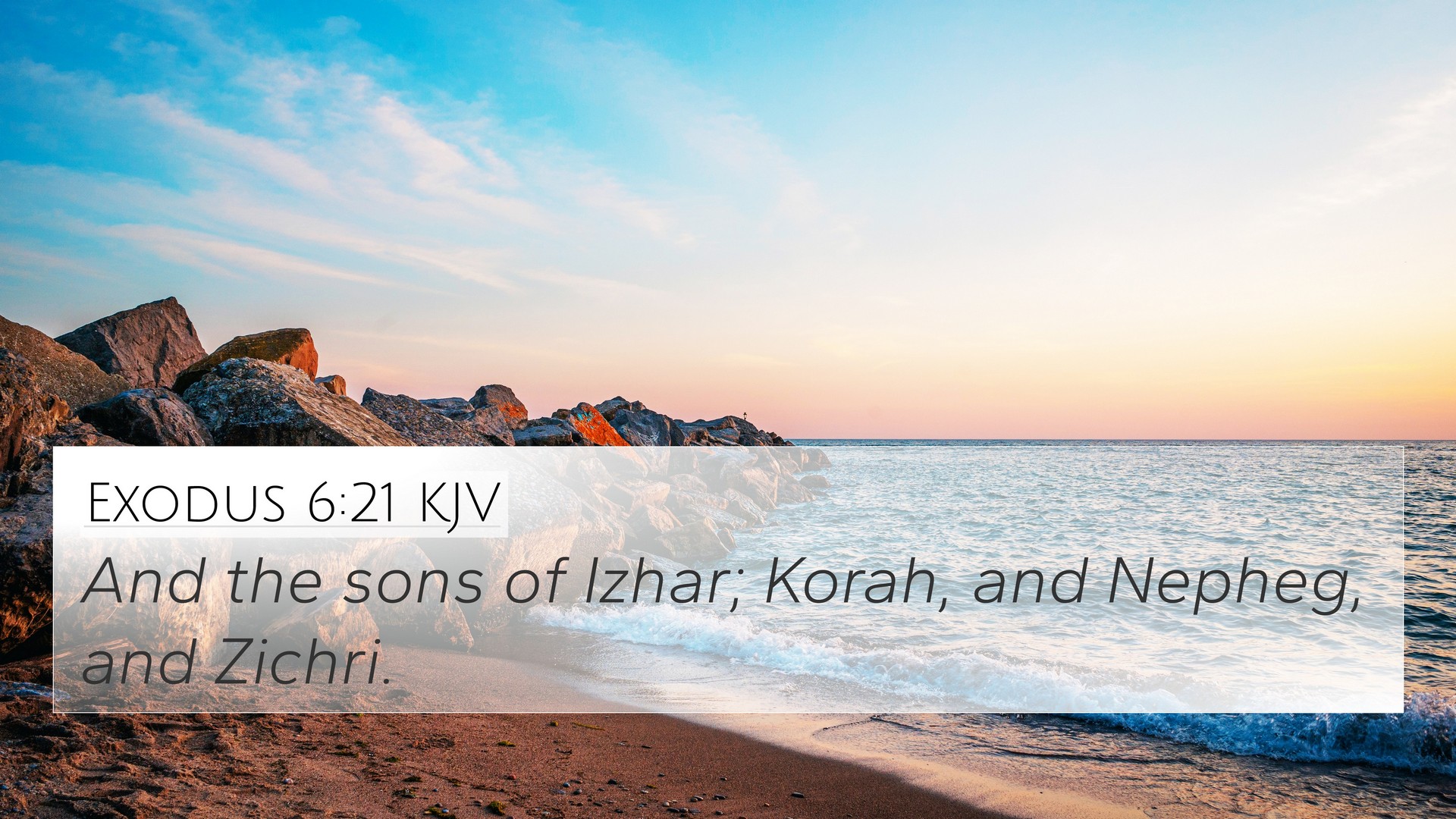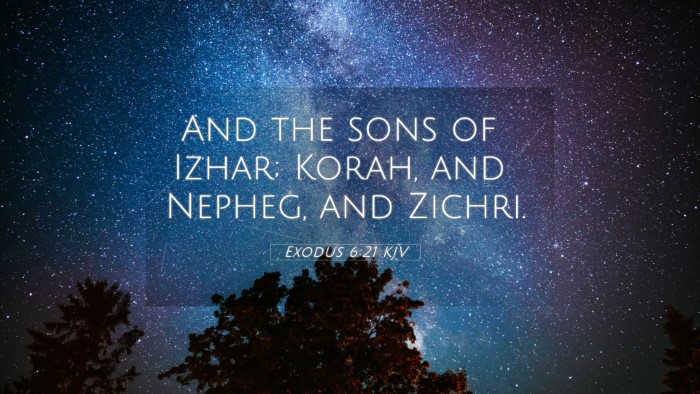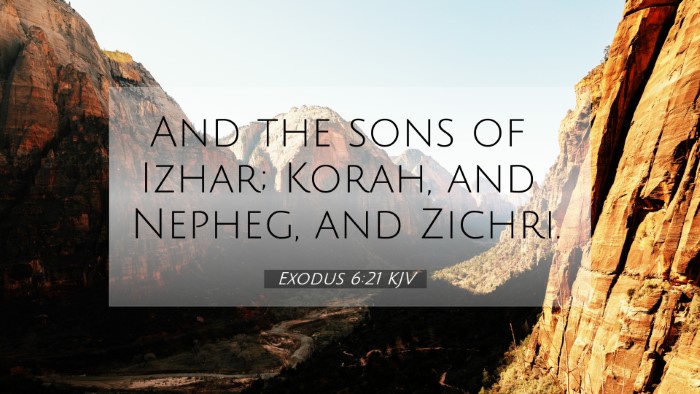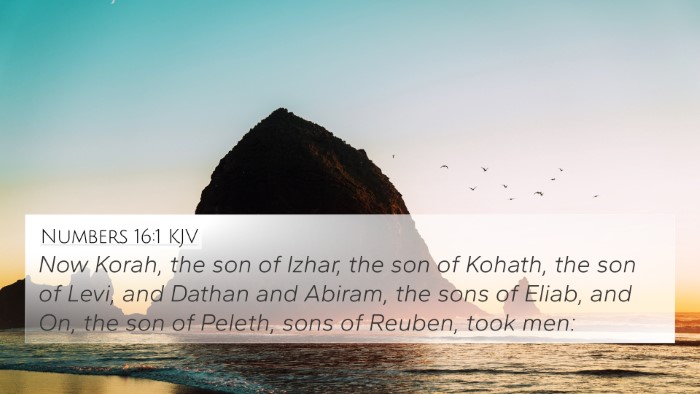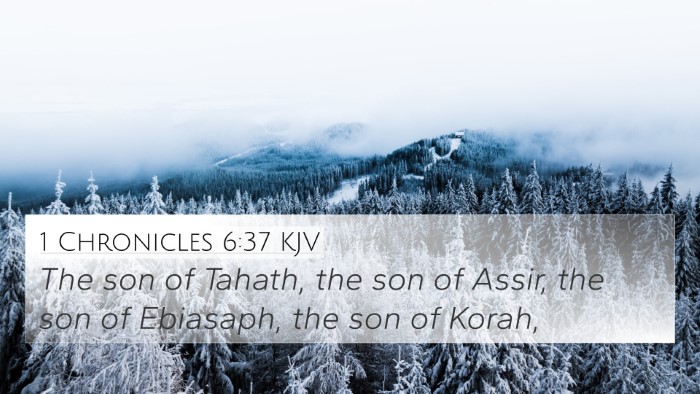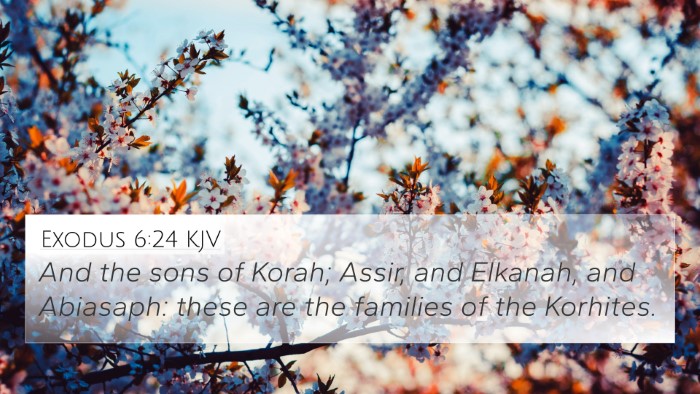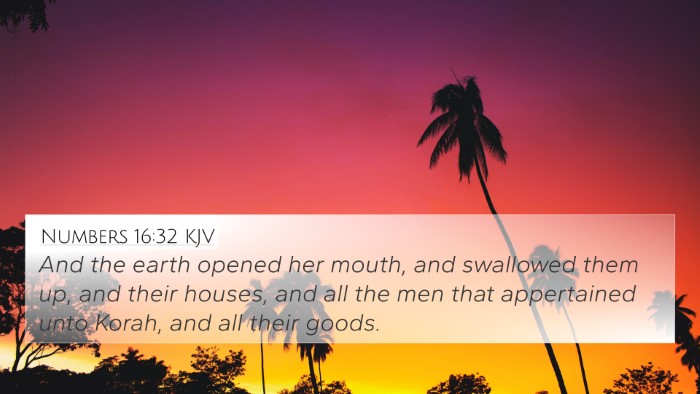Exodus 6:21: Analysis and Interpretation
Verse: Exodus 6:21 - "And the sons of Izhar; Korah, and Nepheg, and Zichri." (KJV)
This verse details the genealogical record of the Levitical family from which Moses and Aaron descended. The mention of Korah, Nepheg, and Zichri highlights the importance of lineage, particularly in the context of the priestly duties, further establishing God's covenantal relationships with His people.
Summary of Meaning
The significance of Exodus 6:21 encompasses both a genealogical record and a foreshadowing of future events in Israel's history. The sons of Izhar, specifically Korah, are notable figures who would later challenge Moses' leadership, indicating that familial lines not only bear honor but also potential strife.
Insights from Public Domain Commentaries
Matthew Henry Commentary
Henry emphasizes the importance of knowing one's lineage, especially in a covenantal context. He notes that the detailed listings of families serve to remind the Israelites of their heritage and the providential order established by God. The identification of Korah is significant, as it prepares the reader for understanding his rebellion against Moses, a pivotal event in the narrative.
Albert Barnes Commentary
Barnes remarks on the significance of the names mentioned in this verse, pointing to their roles in the Levitical priesthood. He discusses how these genealogies serve both a historical and theological purpose, grounding the narrative of Exodus in the broader contexts of God's promises to Abraham, Isaac, and Jacob. The genealogical structure helps to maintain the continuity of God's Plan through the generations.
Adam Clarke Commentary
Clarke provides detailed analysis on the implications of Korah's lineage, particularly as it relates to the future events surrounding the Levites. He points out how this verse is a reminder of the importance of obedience to God's chosen leaders, as Korah’s story later illustrates the consequences of rebellion against divinely appointed authority.
Related Bible Cross References
- Korah's Rebellion - Numbers 16:1-35: This account describes the uprising led by Korah, emphasizing the consequences of challenging God's chosen leadership.
- Levitical Priests - Exodus 28:1: Further details on Aaron's descendants and their consecration as priests.
- God's Covenant with Moses - Exodus 3:10: God's appointment of Moses as leader, laying the groundwork for understanding authority in Israel.
- Genealogy of Jesus - Matthew 1:1-17: This highlights the significance of lineages in biblical theology, connecting the Old Testament to the New.
- Numbers 26:9-10: A recounting of Korah's lineage, reaffirming his family's role and the seriousness of their actions.
- 1 Chronicles 6:22-30: Further genealogical connections of the Levites that underscore their heritage.
- Hebrews 7:11-14: Discusses the priesthood relating to the order of Aaron, emphasizing the transition to Christ's priesthood.
- Psalm 106:16-18: Reflects on the rebellion of Korah within the context of Israel's history.
- Exodus 4:14: Introduction of Aaron as Moses' spokesperson, supporting the leadership structure.
- Deuteronomy 10:8: The setting apart of the Levites for service in the tabernacle.
Conclusion
Exodus 6:21 serves as more than just a genealogical record; it sets the stage for understanding the relationships and tensions within Israel's leadership and God’s covenant with His people. The challenges presented by figures like Korah also establish a framework for interpreting obedience and authority within the broader narrative of Scripture.
Using Cross-References to Enhance Understanding
Utilizing tools for Bible cross-referencing can deepen one’s understanding of passages like Exodus 6:21. By exploring cross-reference Bible study techniques, individuals can identify connections between this verse and others, enriching their interpretations and insights into the text.
